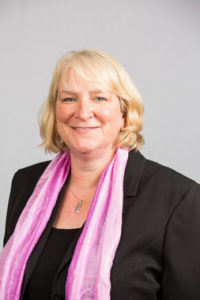Careers for Policy Wonks
In my many years (okay, it’s been 19, but who’s counting?) as Director of Graduate Career  Services & Alumni Relations at the Ford School, I’ve worked with students through great economic times, downturns in the economy, Presidential and party transitions, and any number of shifts in policy priorities, trends in public-private partnerships, emerging fields and markets, and more.
Services & Alumni Relations at the Ford School, I’ve worked with students through great economic times, downturns in the economy, Presidential and party transitions, and any number of shifts in policy priorities, trends in public-private partnerships, emerging fields and markets, and more.
Change and uncertainty can be disconcerting, and it can require (and build) resiliency and flexibility you didn’t realize you had (or wanted!) But here’s what I know through the many shifts and transitions over the years: the world has, does, and will continue to need the skills of MPP/MPA graduates of the Ford School.
Our students, recent graduates, and alumni work across all sectors (e.g. federal, nonprofit, private, etc). From year to year, the sectors in which students accept internships and first jobs out of Ford shifts a bit. Much of that shift is influenced by individual choice (i.e. I want to work in local government). Some is influenced by the hiring market; for example, a reduction in federal workforce often leads to government work being outsourced to consulting firms, which leads to a greater interest on the part of consulting firms in recruiting at Ford.
You can see some of the data on internships and on first jobs for the past few years on our website. Over the course of their careers, many alumni work in multiple sectors and on a host of policy issues. Our alumni careers map will allow you to read about some of their impressive career paths.
Given the diversity of interests among our students, our office’s goal for programming and our employer relations work is to continually evaluate and respond to the ever-changing landscape for policy wonks. We continue what works—which includes cultivating our many established employer relationships. And we grow our employer base to respond to changes in both student interests and workforce priorities.
So how does our career services team go about building the Ford School’s connections with employers of interest to policy students?
- We survey students on their top organizations and policy areas of interest
- We ask our faculty and alumni about the organizations doing cutting-edge work in their specific field or policy area
- We listen for the organizations and issues that are emerging, keeping a close ear to our Policy Talks speakers, the media, community leaders, professional conference speakers, etc.
- We follow the money trail: what organizations are being supported by foundations or receiving federal or state funding? Newly-funded priorities often require new staff support.
- We follow the track record of success, identifying organizations where students individually developed internships or accepted jobs in organizations unfamiliar to us that are likely to be of interest to other students.
- We then reach out to build recruiting relationships with the Ford School. We invite new organizations to host information sessions at the Ford School, post jobs and internships on FordCareers, receive our resume books, participate on a panel during our DC or Detroit career trips, etc.
- Some of our work is “cold calling”, but for most part we leverage networks: that includes student networks, the incredible reach of U-M networks around the world, our very close Ford alumni networks, faculty networks, speaker networks, our donor networks, and more.
Employers and communities need strategic, collaborative, well-trained problem solvers and communicators. The Ford School analytic and communications tool kit is relevant and transferrable across sectors and policy issues. This is why employers in all sectors actively seek out our interns and grads.
Should your career bring you to the Ford School, my team and I look forward to working with you this fall to forge the rewarding and meaningful career you seek.
— Jennifer Niggemeier, Director
Graduate Career Services & Alumni Relations
